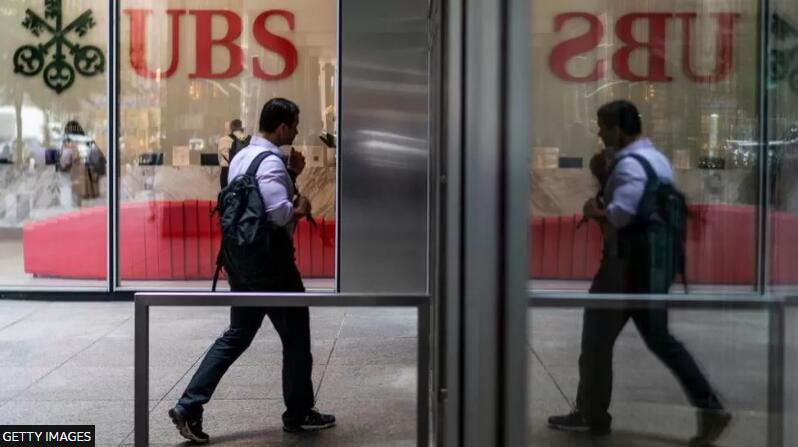
UBS to pay $1.4bn to settle fraud claims from 2008 crisis
Swiss bank UBS has agreed to pay $1.4bn (£1.1bn) to resolve fraud claims in the US stemming from the 2008 financial crisis.
It brings to a close the last case brought by US prosecutors investigating banks’ conduct in the run-up to the crash, which sparked a global downturn.
Prosecutors said the bank had lied about the quality of mortgages that were packaged and sold to investors in a series of deals in 2006-2007.
UBS did not admit or deny the claims.
In a statement, it said it had already set aside money for the “legacy” matter and the deal would resolve all civil claims in the US.
The bank had previously sought to have the case dismissed, saying prosecutors had not presented evidence of any intentional fraud.
In the lawsuit, which was brought in 2018, US prosecutors alleged that the Swiss bank had misled investors in connection with the sale of mortgage-backed securities more than a decade ago.
Ryan K Buchanan, United States attorney for the Northern District of Georgia, said UBS’ conduct had “played a significant role in causing a financial crisis that harmed millions of Americans”.
“The scope of this settlement should serve as a warning to other financial institutions – both large and small – of the significant penalties that can result when corporations misrepresent vital information to investors and undermine trust in our public markets,” he added.
UBS, which is one of the world’s top investment banks, is the eighteenth firm to reach a settlement in the US over its role in the 2008 crisis, prosecutors said.
The deals have led to more than $36bn in penalties altogether, involving the world’s biggest banks, ratings firms and others.
US banks including JP Morgan and Bank of America have agreed to pay far larger sums than UBS.
Global banks’ exposure to bad US mortgages in the early 2000s played a key role in sparking the financial crisis, which led to a sharp contraction in the global economy and the most severe downturn since the Great Depression of the 1930s in America.
Unexpected losses stemming from the loans created strains in the financial system and led to the collapse of several major banks, including Lehman Brothers in the US in 2008.
Prosecutors have accused banks of fuelling the crisis with illegal mortgage lending, which spread to the wider financial system thanks to widespread trading of securities backed by mortgages.
Comments (0)